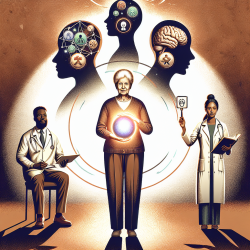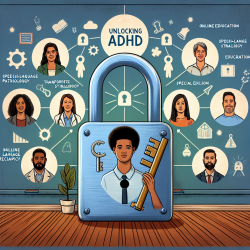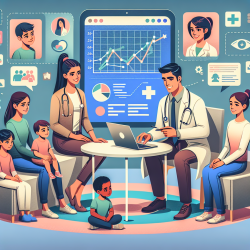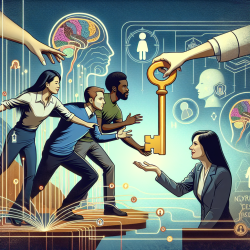The realm of mental health care is constantly evolving, and one of the most promising developments is the use of guided self-help (GSH) techniques to treat generalized anxiety disorder (GAD) in older adults. This innovative approach not only expands access to treatment but also leverages the capabilities of trained lay providers (LPs) to deliver effective care. In this blog post, we explore how practitioners can improve their skills by implementing findings from recent research and encourage further exploration in this field.
The Promise of Guided Self-Help
Guided self-help based on cognitive-behavioral therapy (GSH-CBT) offers a structured framework where patients work through standardized psychological treatments independently while receiving support from a guide. This method has shown promise in treating GAD among older adults, a group often underserved due to barriers such as limited mobility and access to traditional mental health services.
The study "Self-help guided by trained lay providers for generalized anxiety disorder in older adults" highlights the efficacy of GSH-CBT when guided by LPs. This approach not only reduces the need for licensed therapists but also makes mental health care more accessible and cost-effective.
The Role of Lay Providers
One of the significant advantages of GSH-CBT is its reliance on LPs rather than licensed mental health professionals. LPs are trained to provide motivational, emotional, and technical support without delving into psychotherapy. This model allows for a broader workforce capable of addressing the mental health needs of older adults.
- Training: LPs undergo comprehensive training to understand GAD in older adults and develop basic helping relationship skills.
- Supervision: Ongoing supervision by licensed psychologists ensures that LPs maintain high standards of care.
Implementing Research Findings
Practitioners looking to enhance their skills can benefit from incorporating GSH-CBT techniques into their practice. Here are some ways to get started:
- Dive into Research: Familiarize yourself with studies on GSH-CBT and its applications for older adults with GAD. Understanding the evidence base will strengthen your practice and help you make informed decisions.
- Pilot Programs: Consider starting small pilot programs within your practice or community to test the feasibility and effectiveness of GSH-CBT guided by LPs.
- Collaborate with Experts: Network with researchers and practitioners who have experience with GSH-CBT. Collaborative efforts can lead to new insights and improved methodologies.
The Path Forward
The potential impact of GSH-CBT guided by LPs is profound. As our population ages, the demand for accessible mental health care will only increase. By embracing innovative approaches like GSH-CBT, practitioners can play a pivotal role in meeting this demand while improving outcomes for older adults with GAD.
If you're interested in exploring this topic further, consider reviewing the original research paper titled "Self-help guided by trained lay providers for generalized anxiety disorder in older adults: study protocol for a randomized controlled trial". This study provides valuable insights into the efficacy and implementation of this promising treatment model.










